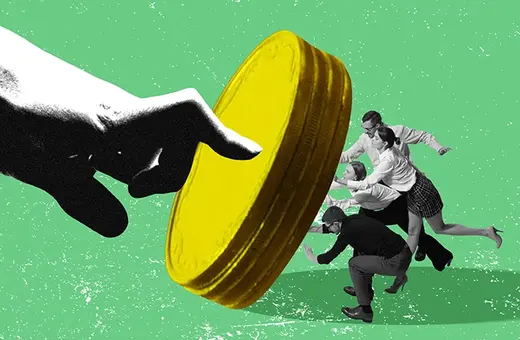Angus Deaton is a Nobel-prize winning economist known for his ground breaking work on ‘Deaths of Despair’. In this exclusive written interview with the IAI, ahead of his live online panel on the Tears of the West – tickets here, Professor Deaton explains where he has changed his mind, why economics has gone wrong and why economists need philosophy to chart a better future.
You have been a practicing economist now for over half a century. What, if anything, have you changed your mind on?
I learned to be an economist in what, by today’s lights, was a heterodox environment, Cambridge of the early 1970s. The Cambridge Keynesians—Joan Robinson, Lord Kahn, Austin Robinson, Nicholas Kaldor, David Champernowne—were important players, as were James Meade and Richard Stone, who were less visible and voluble, though both were important to me, particularly Stone. There were also younger economists who were destined to do great things, including Tony Atkinson, Jim Mirrlees, Amartya Sen, and Joe Stiglitz.
___
I may have never had a firm mind to change.
___
I heard and listened to many contradictory views, and learned much, but I don’t think I ever adopted the settled, standard, American graduate school view of economics that is so hard to change. I took economics courses for only one year, and graduate courses not at all. I wrote papers, and Cambridge allowed me to get a PhD based on them.
As a result, I may have never had a firm mind to change though, like many economists, and many non-economists, the Financial Crisis made it clear that our working model of western capitalism, of markets, and of globalization, was wrong and that the benefits of markets were never going to “trickle down” to everyone. More important still was my work with Anne Case showing that the American economy is not working for the majority of adults who do not have a four-year college degree.
___
Philosophers think about human wellbeing, as well as about social justice, and the organization of society. We need to reclaim that territory.
___
Why does economics need philosophy?
It is only recently that we thought we did not! Economics has redefined itself as a technocratic enterprise largely concerned with efficiency, with how to best allocate limited resources. Keynes thought that the political problem of humankind was how to reconcile efficiency, social justice, and individual liberty. James Meade wrote about exactly these. Friedman was a libertarian as well as an economist. Adam Smith was a Professor of Moral Philosophy and was every bit as much a philosopher as an economist. The same was true of Marx and Mill.
Philosophers think about human wellbeing, as well as about social justice, and the organization of society. We need to reclaim that territory. Of course, it was never completely lost, with Amartya Sen the leading example today. Philosophy also needs economists, who are often good at thinking through the practical consequences of policies.
I am not sure that we have to decide between various philosophical frameworks. Indeed, it is having the argument that is the point, and that is what we are not doing. Economists often implicitly adopt some version of utilitarianism or avoid ethics altogether. We have given up on welfare economics, which used to be a central topic. I am not arguing for any particular framework, just that we need to bring ethics back into the mainstream.






















Join the conversation